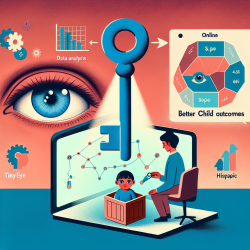Understanding the Impact of School Factors on Transgender and Non-Binary Youth
As practitioners, it is imperative to understand the profound impact that school environments have on the well-being of transgender and non-binary (TNB) youths. A recent study, "School Factors Strongly Impact Transgender and Non-Binary Youths’ Well-Being," sheds light on the lived experiences of TNB students and the significant role that school factors play in their mental health and overall well-being.
Key Findings from the Research
The study, conducted through qualitative secondary data analysis, revealed that the acknowledgment of gender identity in schools is crucial for TNB students' well-being. The research identified several school-related factors impacting TNB youths, including:
- School Socio-Cultural Environment: The overall climate and culture within a school can either affirm or undermine a TNB student's gender identity.
- Attitudes and Behaviors of Teachers and Peers: Supportive attitudes from teachers and peers significantly contribute to a positive school experience for TNB students.
- Physical Environments: Gendered spaces such as bathrooms and locker rooms can be sources of discomfort and distress for TNB students.
- Confidentiality of Gender Identity: Respecting the privacy of TNB students regarding their gender identity is essential for their sense of safety and inclusion.
Strategies for Practitioners
Practitioners can play a pivotal role in improving school environments for TNB students. Here are some strategies based on the study's findings:
- Advocate for Inclusive Policies: Encourage schools to adopt policies that affirm gender diversity and protect the rights of TNB students.
- Promote Awareness and Education: Organize training sessions for teachers and staff to increase awareness about gender diversity and the specific needs of TNB students.
- Supportive Interventions: Work with school counselors to provide targeted support for TNB students, ensuring they have access to mental health resources.
- Foster Safe Spaces: Advocate for the creation of gender-neutral spaces and support groups within schools to provide safe environments for TNB students.
Encouraging Further Research
While this study provides valuable insights, further research is needed to explore the diverse experiences of TNB students across different cultural and geographical contexts. Practitioners are encouraged to engage in research initiatives that aim to deepen our understanding of the unique challenges faced by TNB youth in schools.
To read the original research paper, please follow this link: School Factors Strongly Impact Transgender and Non-Binary Youths’ Well-Being.










